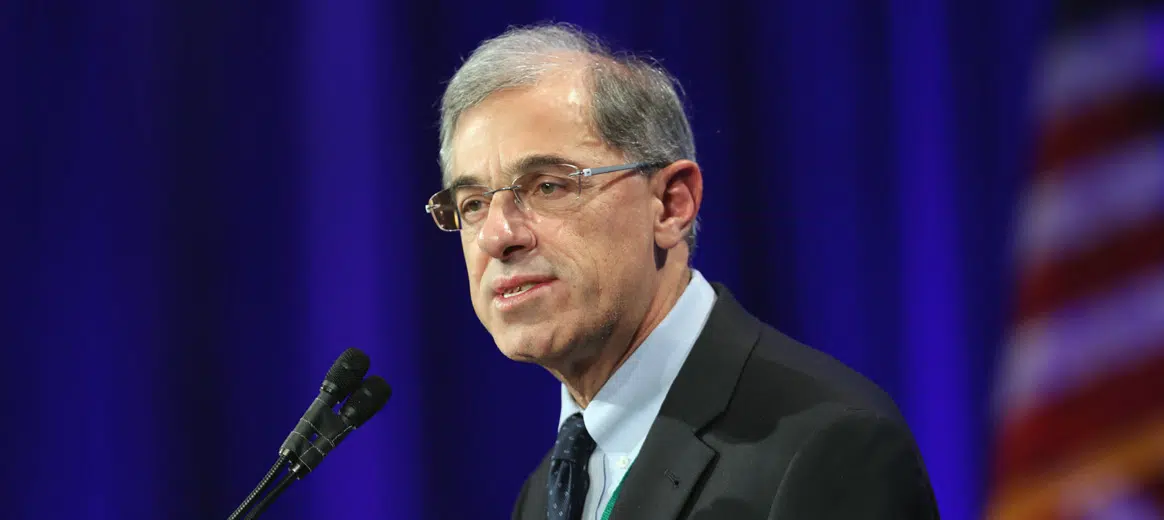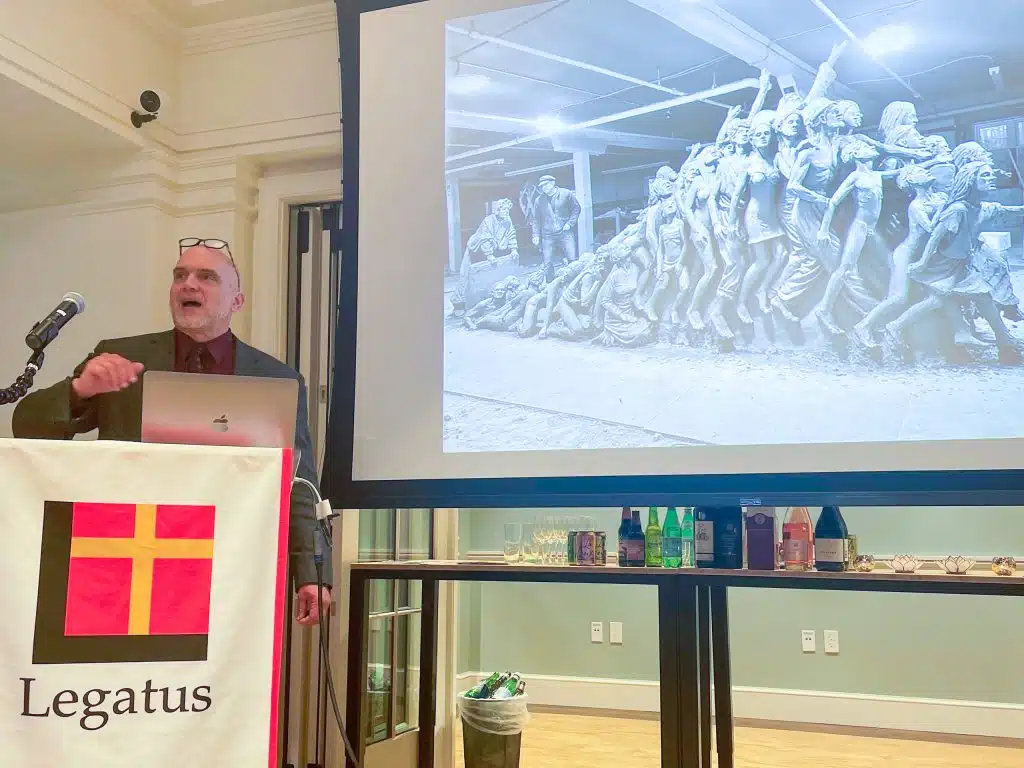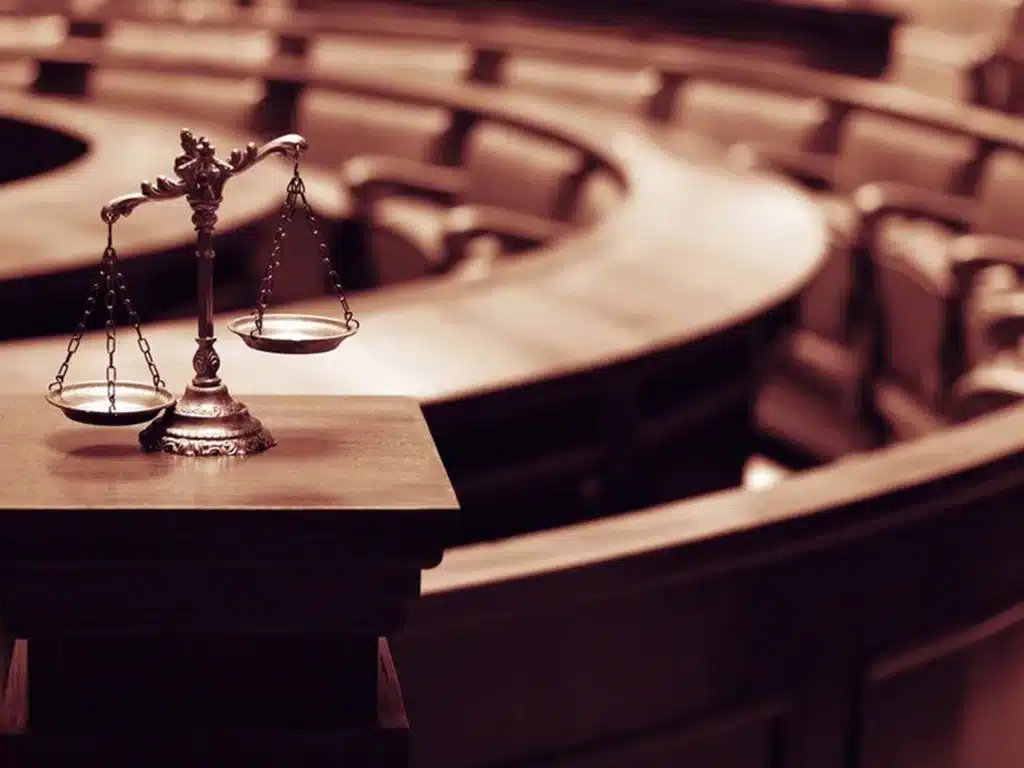BALTIMORE — The U.S. bishops gave a standing ovation Nov. 13 to Francesco Cesareo, chairman of the National Review Board, for his report on the widening abuse crisis in the church and his calls for more action from them to address the abuse.
Cesareo, board chairman since 2013, called for broadening the scope of the “Charter on the Protection of Children and Young People” to include bishops. He also urged publishing complete lists of credibly accused clergy in all dioceses; improving the audit process; and enhancing accountability for bishops regarding cases of abuse.
He urged the bishops to take action and continue to move solutions to abuse forward. “Don’t stagnate it, or slow it down,” said Cesareo during a question-and-answer period following his report. “If that does not happen, I fear for the future of our church.”
Cesareo’s report came at the beginning of the second day of the annual fall assembly of the U.S. Conference of Catholic Bishops in Baltimore. The day’s agenda included discussion of proposals for addressing the abuse crisis but items that a day earlier the Vatican asked they delay voting on.
Those include proposals for “Standards of Episcopal Conduct,” a special commission for review of complaints against bishops for violations of “Standards of Episcopal Conduct” and a protocol regarding restrictions on bishops who were removed or who resigned over claims of sexual misconduct made against them or for grave negligence in office.
Father David A. Whitestone, chair of the U.S. bishops’ National Advisory Council and pastor of St. Leo the Great Church in Fairfax, also spoke to the assembly Nov. 13.
The council’s membership is drawn from the laity as well as deacons, priests, women religious sisters and brothers, and bishops from around the country. Members are recommended by their diocesan bishop and represent the 15 geographical regions of the USCCB.
During the morning session, a proposed pastoral letter on racism, “Open Wide Our Hearts: The Enduring Call to Love — A Pastoral Letter Against Racism,” was introduced by Archbishop Gustavo Garcia-Siller of San Antonio, chairman of the Committee on Cultural Diversity in the Church.
The pastoral was prepared in consultation and collaboration of several committees: the cultural diversity committee; the Ad Hoc Committee Against Racism, chaired by Bishop Sheldon J. Fabre of Houma-Thibodaux, La.; and all the other standing USCCB committees.
“Despite many promising strides made in our country, the ugly cancer of racism still infects our nation,” the proposed pastoral says. A vote to approve it was scheduled for Nov. 14, the last day of the public sessions of the fall assembly.
Other business the bishops had on their agenda included a number of action items:
— The endorsement of the sainthood cause of Sister Thea Bowman, the great-granddaughter of slaves and the only African-American member of the Franciscan Sisters of Perpetual Adoration, who transcended racism to leave a lasting mark on Catholic life in the United States in the late 20th century.
— Approving a budget for 2019 that shows a small surplus, but shows far less for the USCCB’s Migration and Refugee Services line item due to continuing federal cutbacks in the number of refugees being admitted into the United States.
— Hearing reports from bishops on October’s Synod of Bishops on “Young People, the Faith, and Vocational Discernment,” July’s V Encuentro for Hispanic Catholics in the United States; and recognition of the 40th anniversary of the USCCB’s pastoral statement on persons with disabilities.



